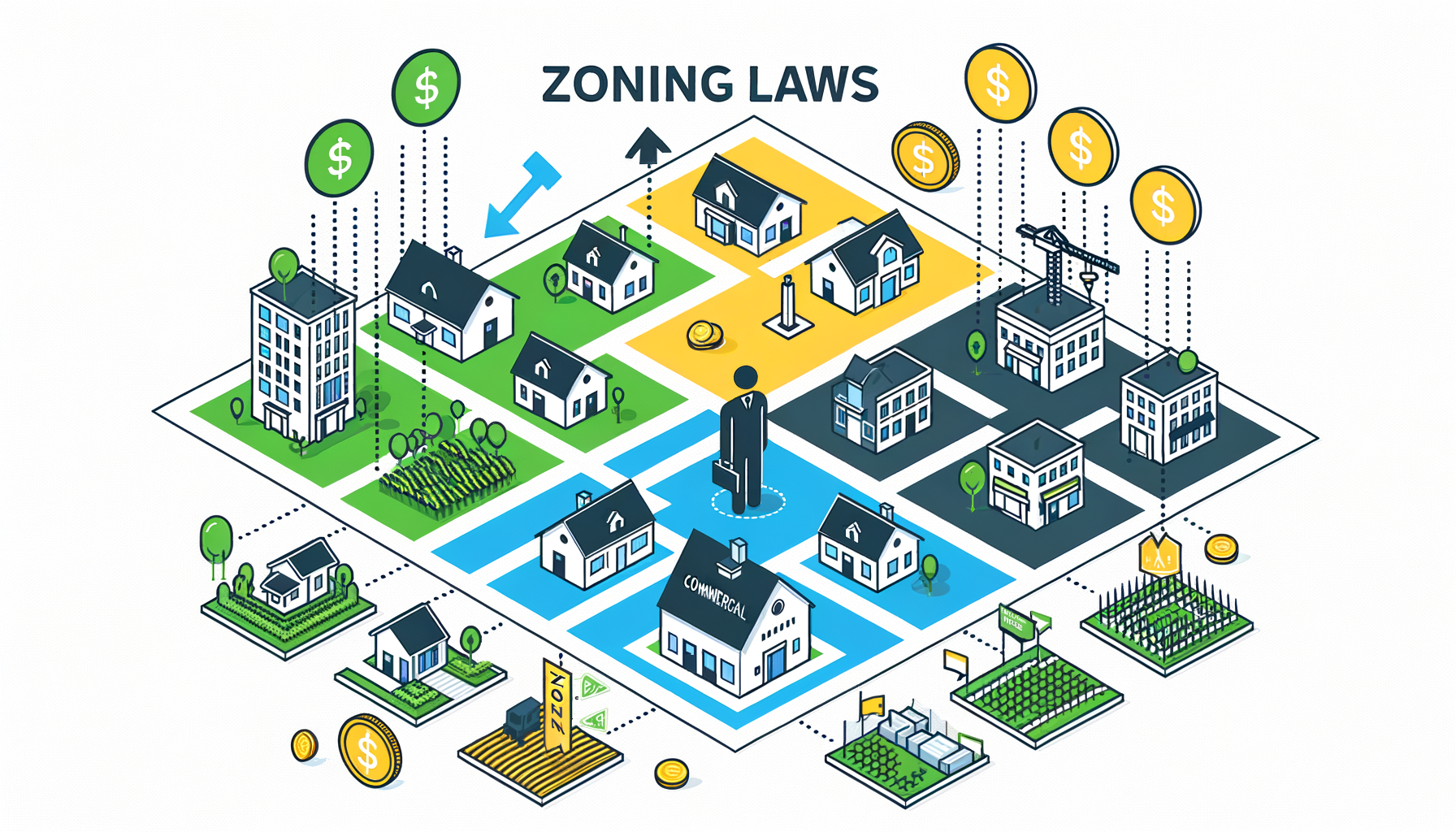“Deciphering the Zoning Puzzle: A Guide to Choosing the Ideal Real Estate”

Understanding the importance of zoning in real estate investments is paramount for success. In fact, the impact of zoning laws can make or break your investment, as it determines how a property can be used, where it can be located, and what improvements can be made. Better comprehension of how zoning works and its effects can significantly reduce potential property investment risk.
**What is Zoning?**
In simple terms, zoning is a regulatory method that divides land into areas or ‘zones.’ These zones dictate how pieces of property can be utilized within specific geographical locations. Established by local governments, zoning regulations protect community citizens by ensuring appropriate land use in certain areas. These laws are designed to segregate uses that are seen as incompatible and provide a way for land in a town or city to be divided into residential, commercial, and industrial zones.
**Types of Zoning**
There are various zoning categories, which differ across regions due to the differing needs of each individual city or town. Nonetheless, the most common categories of zoning are residential, commercial, industrial, and agricultural. These categories may be further divided into nuances, such as whether an area is residential multi-family and the types of businesses that can operate in a commercial zone.
1. **Residential Zoning:** Residential zoning areas are designed for inhabitation purposes. They may include single-family homes, duplexes, townhouses, apartments, mobile homes, and condominiums. The specific character of the dwelling units varies by region and existing infrastructure.
2. **Commercial Zoning:** This type is usually set for business activities like retail stores, restaurants, and offices. The rules in commercial zones vary and may dictate parking spaces, building heights, and the proportion of the building in a lot.
3. **Industrial Zoning:** Industrial zones are reserved for manufacturing companies, warehouses, and sometimes wholesale distributors. Some variations, like light and heavy industrial zones, might have specific restrictions such as noise standards.
4. **Agricultural Zoning:** This type of zoning is specifically for agricultural uses including farming activities and associated housing.
Local zoning laws may include more unique zoning types such as recreational for parks and golf courses, or historic for landmarks and districts preserve the character of an area.
**Why is Zoning Important in Real Estate?**
Understanding zoning is integral to real estate investing due to its significant impact on a property’s potential uses and value. Before purchasing a property, it is crucial to know if the zoning aligns with your intended use.
For instance, if you’re hoping to open a retail store and discover the property you’re eyeing isn’t zoned for commercial use, your investment strategy needs to change. Zoning codes play a major role in determining whether you can use a property for rentals, operate a business there, or even make specific improvements like building an addition or renovating aspects of the property.
Also, zoning regulations may have restrictions regarding building sizes, signs, parking, and even the specific type of business that can operate in a locale. For example, the area within a city may only allow specific industries to function, like manufacturing, and ban others like retail.
**How to Identify the Correct Zoning**
Identifying the correct zoning classification for your desired property is key to ensure you can use the property as planned. Here are steps to accurately determine the zoning type:
1. **Look it up Online:** Many cities have online databases or mapping software where you enter an address, and the zoning information is displayed.
2. **Visit the City or County Office:** Sometimes, particularly in smaller regions, you’ll need to physically go to a city or county office to get zoning information.
3. **Use Zoning Consultants:** They are professionals who specialize in interpreting and dealing with zoning issues, and they can be hired for complex situations.
**Zoning Changes and Variances**
There are instances when a property’s current zoning does not align with your future investment plans. In such cases, you can apply for a zoning variance or change.
A variance is a request to deviate from current zoning requirements. If granted, it permits the owner to use their land in a way that is ordinarily not allowed by the zoning ordinance. Alternatively, a zoning change (or rezoning) may be pursued. This involves changing the official zoning map to a classification that permits your intended use.
While it is possible, it isn’t easy to change zoning or get a variance, as many factors come into play like meeting the comprehensive plan’s objectives, surrounding properties, future development plans and public hearing to get feedback from community members. In complex situations, a zoning attorney or consultant’s services might be beneficial.
**Final Thoughts**
For real estate investors, understanding zoning laws and categories is indispensable. With a grasp of the dynamics of zoning, investors can confidently approach land-use rights, assess potential impacts on property value, and develop flexibility in investment strategies. Therefore, before making any property investment, thorough zoning due diligence is a must to avoid unwanted surprises later. Whether searching online, visiting a city office, or hiring a consultant, ensure that the zoning matches your property use aspirations.
Keep in mind, if your preferred property’s zoning doesn’t align with your purposes, it’s not a dead end. Zoning changes and variances might be an option if you’re ready to navigate the rigorous process. However, it’s always advisable to seek professional counsel in such cases to ensure a smooth journey and profitable future in your real estate investment venture.
